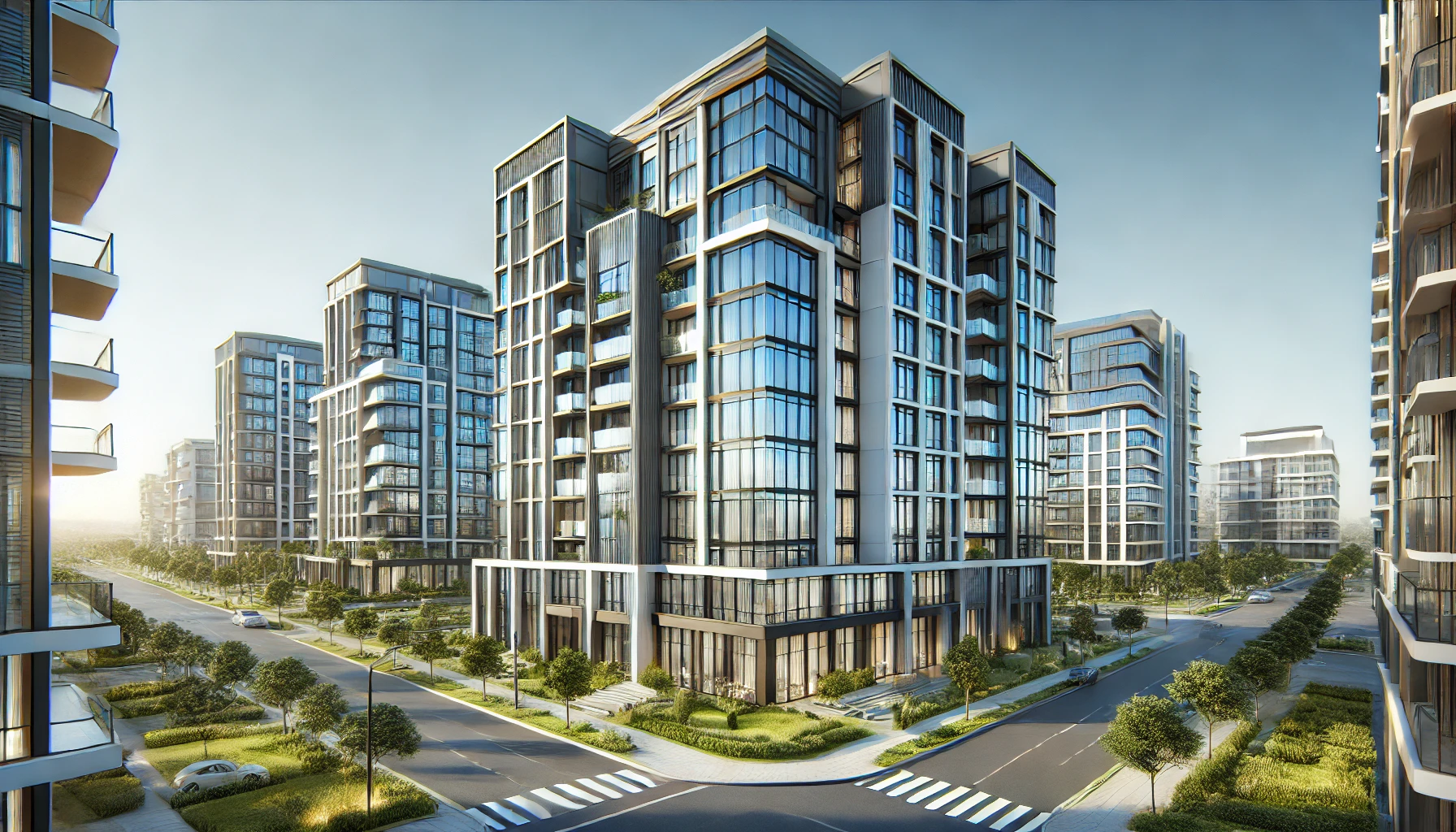The building and real estate industry is one of the most dynamic sectors, impacting economies, communities, and individual lifestyles. It encompasses everything from the construction of residential homes and commercial properties to real estate investments and property management. Whether you're a first-time homebuyer, a seasoned investor, or someone looking to develop a commercial space, understanding the building and real estate industry is key to making informed decisions.
What Is Building and Real Estate?
At its core, the building and real estate industry involves the development, buying, selling, and management of land and properties. This includes:
-
Residential Real Estate: This category covers homes, apartments, and residential complexes, focusing on creating living spaces for individuals and families.
-
Commercial Real Estate: Commercial buildings, office spaces, shopping malls, hotels, and retail spaces fall under this umbrella, catering to businesses and services.
-
Industrial Real Estate: Properties used for industrial purposes like warehouses, factories, and distribution centers. These are essential for businesses that require large operational spaces.
-
Land Development: This refers to the acquisition and preparation of land for new constructions, including zoning, infrastructure, and utilities setup.
-
Property Management: Involves managing residential or commercial properties for owners, including tenant relations, maintenance, and ensuring the property generates income through rent or leases.
Key Aspects of the Building and Real Estate Industry
-
Construction: The building process is the foundation of real estate. It involves architectural design, project planning, materials sourcing, and construction. The quality of construction can significantly affect property value and longevity.
-
Real Estate Investment: This involves buying properties with the aim of generating profit. Real estate investments can be residential or commercial, with profits earned through rental income, appreciation in property value, or flipping properties for resale.
-
Sustainability and Green Building: Modern real estate trends prioritize eco-friendly practices, such as using sustainable materials, energy-efficient designs, and incorporating renewable energy solutions. Green buildings not only reduce environmental impact but also attract environmentally conscious buyers and tenants.
-
Property Valuation: Determining the market value of a property is essential for both buyers and sellers. Factors like location, size, condition, and market trends play a significant role in property valuation.
-
Financing and Mortgages: Real estate purchases often involve significant financial investments, which is why securing a mortgage or financing plan is common. Understanding interest rates, loan terms, and different types of mortgages is crucial for buyers.
-
Real Estate Laws and Regulations: The building and real estate industry is governed by numerous regulations, including zoning laws, building codes, property taxes, and legal documentation like titles and deeds. Compliance with these laws ensures smooth transactions and protects the rights of all parties involved.
Trends in the Building and Real Estate Industry
-
Smart Homes and Technology Integration: With the rise of smart technology, more homes and buildings are being designed with integrated systems for security, lighting, climate control, and more. These features not only increase convenience but also add value to properties.
-
Urbanization and High-Density Housing: As cities expand, there is growing demand for high-density residential and commercial buildings. Skyscrapers, apartment complexes, and mixed-use developments are increasingly common in urban areas to accommodate growing populations.
-
Remote Work and Home Office Spaces: The shift toward remote work has influenced the demand for homes with dedicated office spaces. Real estate developers are now incorporating home offices and co-working areas into residential designs.
-
Sustainable Urban Planning: The demand for sustainable, livable urban spaces is shaping the future of real estate. Developers are focusing on walkable neighborhoods, public transportation access, and eco-friendly building designs to meet environmental standards and buyer preferences.
-
Real Estate Digitalization: Technology has revolutionized the way properties are bought, sold, and managed. Online platforms and virtual tours have become integral to the property buying process, while property management software simplifies day-to-day operations for landlords and real estate companies.
How to Invest in Building and Real Estate
Real estate investment can be a lucrative opportunity for those looking to grow their wealth. Here are some common investment strategies:
-
Buy and Hold: Investors purchase properties to hold onto them for an extended period, benefiting from appreciation in property value and generating rental income.
-
Flipping Properties: Flipping involves buying properties at lower prices, renovating or upgrading them, and reselling them for a profit.
-
Commercial Real Estate Investment: Investing in commercial properties such as office buildings, retail spaces, and industrial properties can generate substantial income through leases and long-term contracts.
-
Real Estate Investment Trusts (REITs): REITs are companies that own, operate, or finance real estate properties. Investors can buy shares in REITs, providing an opportunity to invest in real estate without directly owning properties.
Challenges in the Building and Real Estate Industry
-
Market Fluctuations: The real estate market can be volatile, influenced by economic trends, interest rates, and global events. This uncertainty can impact property values and rental demand.
-
High Initial Costs: Real estate investments require significant upfront capital for down payments, construction, renovations, and legal fees. Securing financing and maintaining cash flow can be challenging for some investors.
-
Regulatory Changes: Zoning laws, tax regulations, and environmental policies can change, affecting property development and ownership.
-
Construction Delays and Costs: Building projects are often delayed due to weather, material shortages, or unforeseen challenges, leading to increased costs and timelines.
Conclusion
The building and real estate industry is a cornerstone of economic growth and individual wealth creation. Whether you're a buyer, investor, or developer, understanding the trends, opportunities, and challenges in this sector is key to making informed decisions. As the industry continues to evolve with technological advancements and sustainability initiatives, it offers exciting opportunities for those looking to build, invest, or simply find their dream home.
To buy RERA Certified DTCP & HMDA approved Gated Community Villa Open Plots Please Contact :
For Sales : 8179712384
Mail : sales@openplots.net
